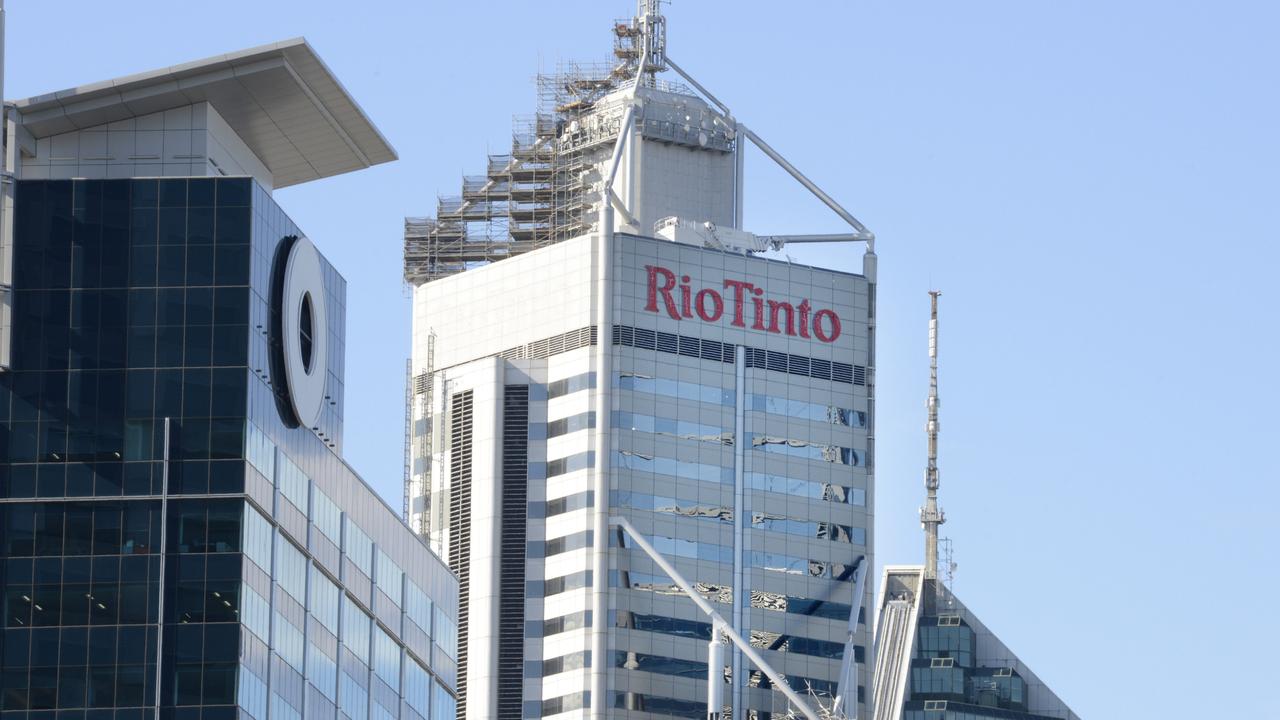Eerie photos of abandoned Evergrande developments expose extent of crisis facing China
Major development projects abandoned by Evergrande as the company teeters on the brink of ruin expose the sheer scale of China’s crisis.
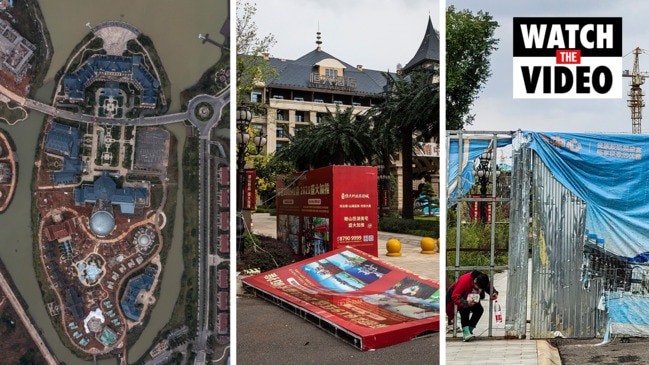
New pictures of abandoned Evergrande building projects have revealed the devastating scale of the crisis engulfing not only the company, but China too.
The Chinese property behemoth started dominating global headlines in recent weeks after emerging as the worlds most indebted real estate firm, racking up staggering debts of $A408 billion.
The sheer magnitude of both the company itself and its potential downfall sparked concern it could become China’s “Lehman moment”, with experts fearing it could trigger a worldwide financial crisis and cause a contagion, ultimately dragging down other companies and sectors.
Now, new pictures have emerged with illustrate in shocking detail just how disastrous the Evergrande nightmare really is.
Wuhan abandoned
A series of new pictures of a stagnant construction site at the Evergrande Wuhan culture-oriented travel city shows how the company has simply upped and walked away from partially-completed projects as the crisis rages on.
It has simply added to China’s existing “ghost towns” problem though, with Mark Williams, chief Asia economist at Capital Economics, predicting the nation had around 30 million unsold properties, which could house 80 million people, according to CNN.
Capital Economics also predicts around 100 million properties, which could house 260 million people, have probably been purchased but yet remain unoccupied.
With Evergrande and other developers now facing potential collapse, there are rising fears China’s ghost town phenomenon will only accelerate further.
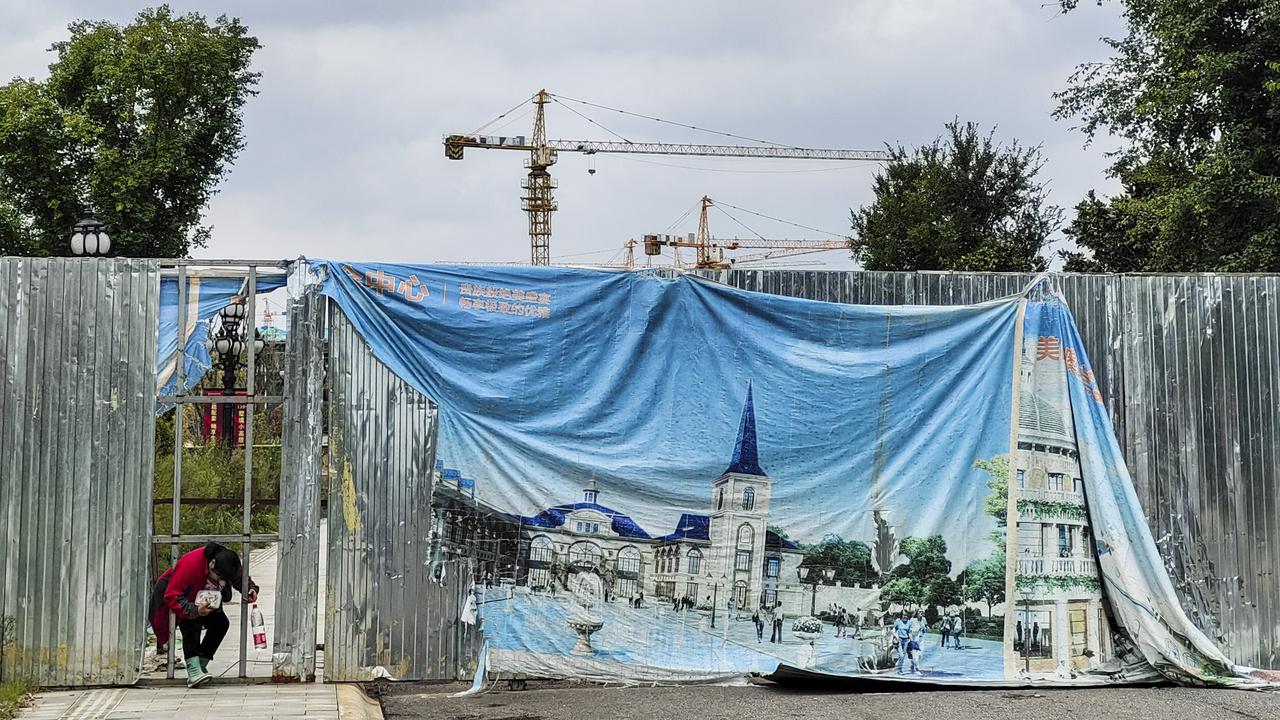
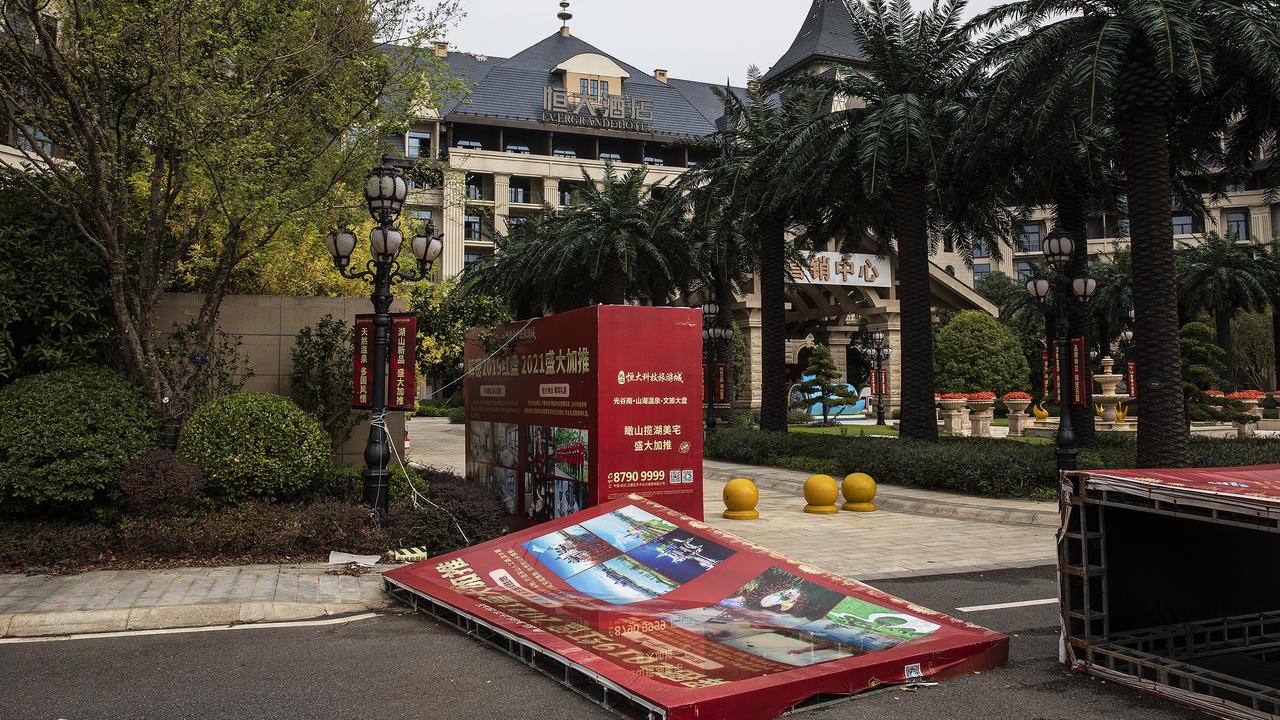
More defaults likely
Just last week, China’s central bank stressed that Evergrande’s spillover risks on financial institutions were controllable.
“In recent years, the company has failed to manage its business well and to operate in accordance with market changes,” The People’s Bank of China head of financial markets Zou Lan said in a press briefing.
“Instead, it blindly diversified and expanded, resulting in serious deterioration of its operating and financial indicators, which eventually led to risks.”
However, he insisted that the risks posed by Evergrande when it comes to the wider financial system were minimal.
Meanwhile, the bank’s governor, Yi Gang, said at a virtual G30 meeting on Sunday that while Evergrande “casts a little bit of concern”, “overall, we can contain the Evergrande risk”.
On the surface, these comments seem like good news, with insiders reassuring the world that the crisis can be contained.
However, experts fear it was a deliberate attempt to downplay the problem, with Evergrande expected to default on two more payments due this week.
If those defaults come to pass, it will be yet another nail in the Evergrande coffin.
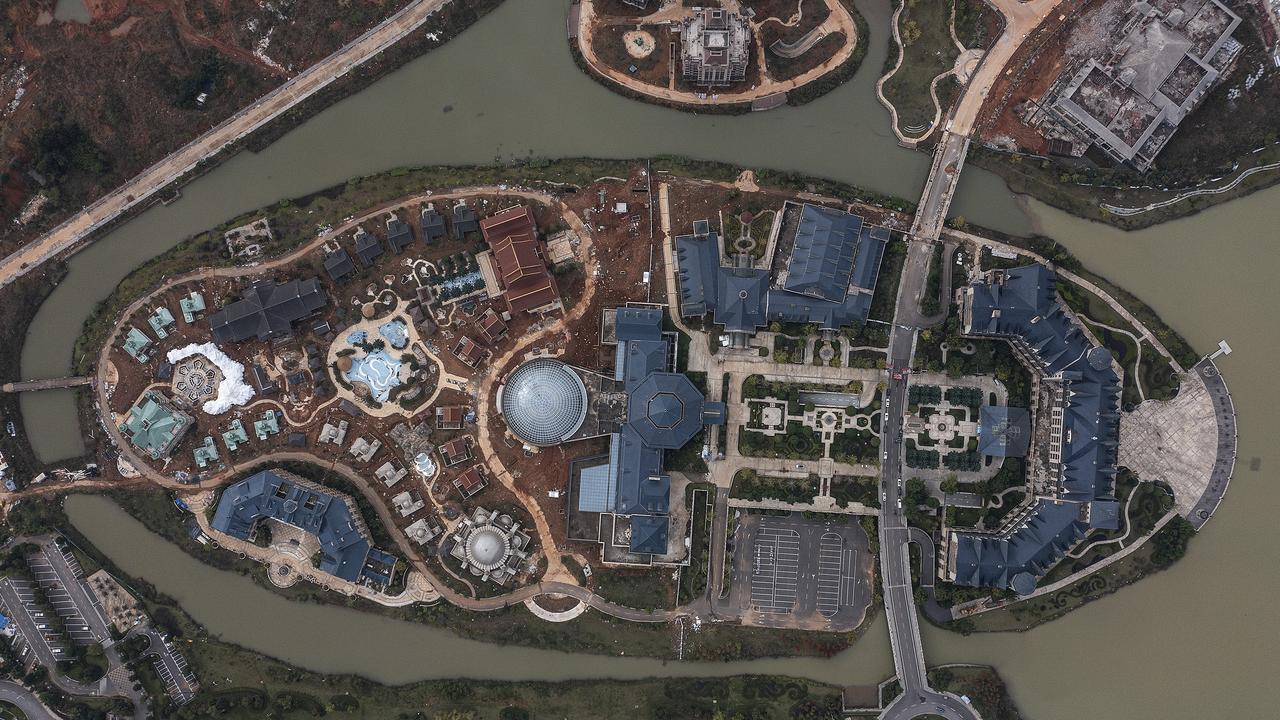
‘Frightening’ sign of things to come
In a recent, exclusive interview with the Institute for New Economic Thinking, high-profile US investment manager Jim Chanos offered an analysis of the China Evergrande crisis – but said he believed the political repercussions of the disaster could be even worse than the economic fallout.
“I think that the impact might be more political than financial. That’s what worries me,” he said.
“It’s the rise of bellicosity, the rise of a more militant China as the economy and the financial situation has gotten more precarious. That’s a 1930s kind of problem.
“We know that a rise in authoritarianism and statism around the world was one of the upshots of ‘29-’32. You had leaders saying, ‘I’m the one that can get us out of this problem’ and ‘They are the ones who got us here’. This situation in China is a little bit frightening to the student of history, because there’s no doubt, whether you’re flying over Taiwan airspace or coming close to ships in the South China Sea, that there’s a rise of tensions in and around China.
“I don’t think it’s a coincidence.”
Property sector in trouble
His comments comes as two major banks – UBS and Barclays – both warned this week that the Evergrande disaster was spreading and already slowing down China’s economy.
On Monday, UBS cut its 2021 growth forecast for China’s GDP from 8.2 per cent to 7.6 per cent and named Evergrande as one of the biggest calamities facing China, along with the nation’s power shortages.
“Both onshore and offshore bond markets remain effectively closed for [property] developers while sales, the main source of cash flow, are dropping,” UBS analysts, led by chief China economist Tao Wang, said in a note on Monday.
“We expect property new starts to decline by 20 per cent year-on-year in Q4 2021 and property investment decline by 5 per cent or more, bringing further downward pressure on the economy.”
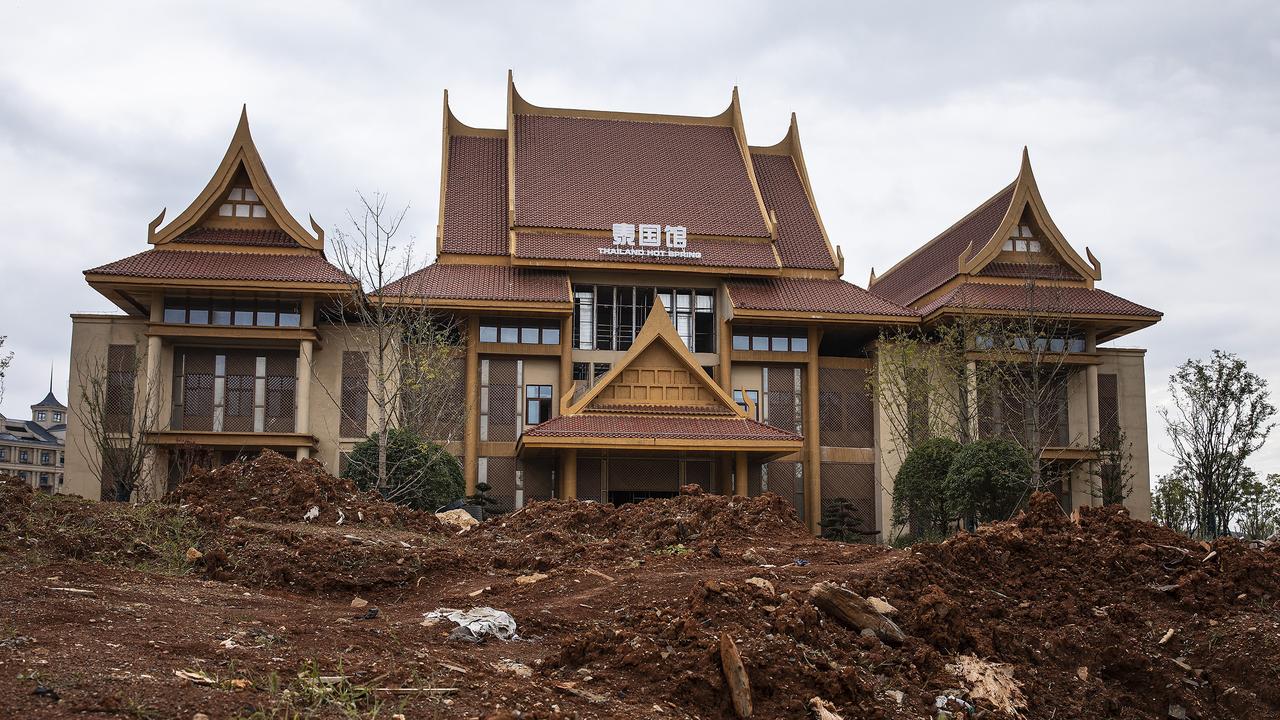
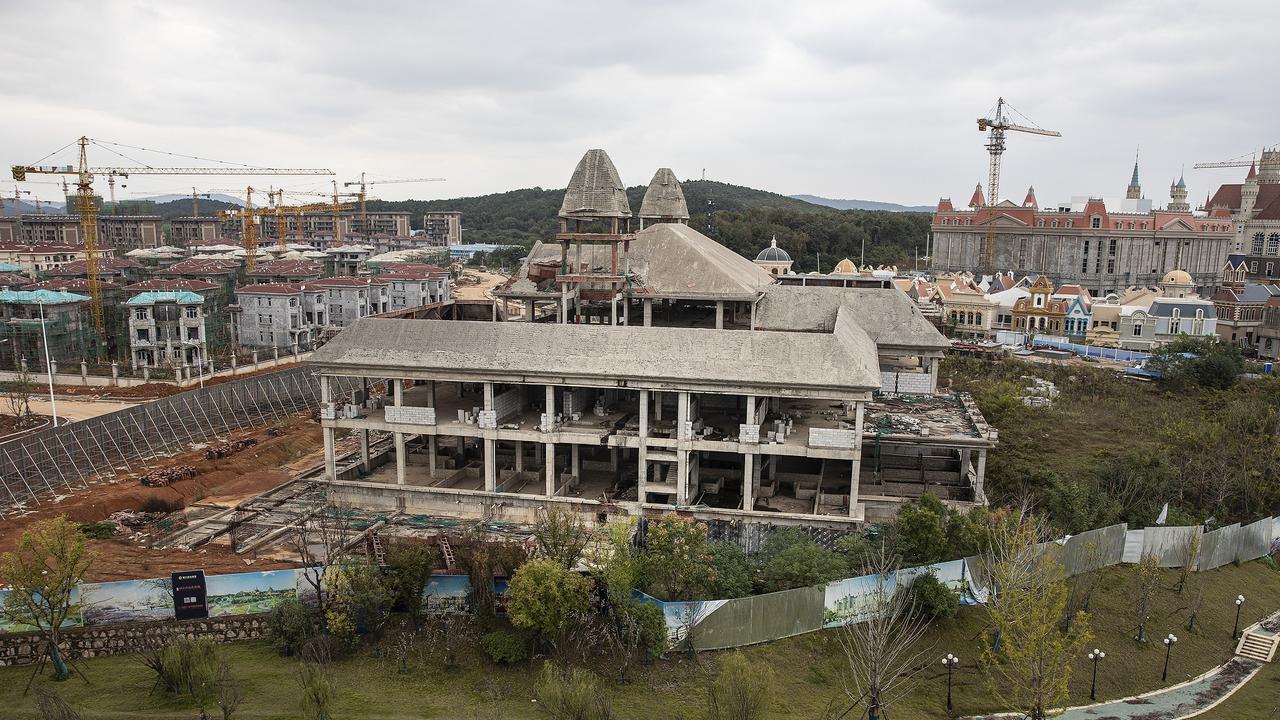
Meanwhile, Barclays slashed its growth forecast for China’s GDP to 8 per cent, compared with an earlier prediction of 8.5 per cent.
The bank’s analysts, including chief China economist Jian Chang, said there has been a “rapid deterioration of housing market sentiment as Evergrande financial difficulties spread to more developers in October”.
Those comments come after fellow real estate companies, such as Fantasia and Sinic Holdings, also aced debt problems recently, with some experts declaring it was a sign a contagion was in full swing.





